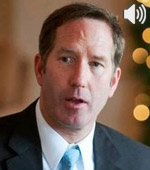In a decision that came as no surprise but nevertheless merits celebration, a federal judge yesterday rejected the Justice Department’s needless lawsuit attempting to block AT&T’s acquisition of Time Warner.
Whenever federal bureaucracies seek to disrupt functioning markets by prohibiting mutual agreements between two willing parties, they carry a heavy burden of proof to establish impending consumer harm. In this case, the opposite was true – the federal government’s needless interference, not the proposed acquisition, would result in consumer harm. Accordingly, Judge Richard Leon ruled that Justice’s allegations “do not come close to answering the question before the Court.”
So why is yesterday’s ruling important going forward? Hopefully, it provides federal bureaucrats an abject lesson against future destructive campaigns of a similar sort.
As one immediate example, consider the proposed merger between T-Mobile and Sprint announced recently. Although the T-Mobile/Sprint proposal involves characteristics unique to it, it offers the consumer market similar sorts of benefits.
Namely, T-Mobile/Sprint prospectively offers an enhanced array of consumer services in comparison to what is available today. For example, the two current companies’ differing but complementary assets would create a new network with enhanced capacity, wider coverage and more effective wireless performance for customers than currently exists. It also promises network upgrades, lower prices and job creation. In particular, the proposed merger offers significant potential benefits through deployment of the first 5G wireless network in the U.S.
Through that $40 billion investment in 5G, consumers will enjoy data delivery at a lower cost, and the incentive for competitors to similarly lower prices to consumers. That will also prompt market competition to expand spectrum in rural areas in addition to urban centers, as well as capacity improvements for consumers.
That’s how market competition works. A T-Mobile/Sprint merger and its 5G deployment would also mean billions in new private infrastructure investment and countless new jobs. In contrast, the absence of a T-Mobile/Sprint merger would mean slower deployment of a 5G nationwide network, and the absence of a market competitor of greater scale. Ultimately, that means consumers would lose.
The Trump Administration has demonstrated to date how deregulation can turbocharge the economy and benefit American consumers. That logic applies with added potency to the ever-evolving telecommunications market, and the Justice Department should learn its lesson and refrain from future needless interference that will only cost consumers and trigger embarrassing legal defeats.

 Timothy Lee, CFIF’s Senior Vice President of Legal and Public Affairs, discusses net neutrality and the misguided push to have the federal government regulate the Internet.
Timothy Lee, CFIF’s Senior Vice President of Legal and Public Affairs, discusses net neutrality and the misguided push to have the federal government regulate the Internet. Timothy Lee, Vice President of Legal and Public Affairs at CFIF, discusses the increased regulatory uncertainty for the Internet sector and U.S. economy caused by FCC and Obama Administration policies, and American foreign policy in an age of uncertainty in the Middle East.
Timothy Lee, Vice President of Legal and Public Affairs at CFIF, discusses the increased regulatory uncertainty for the Internet sector and U.S. economy caused by FCC and Obama Administration policies, and American foreign policy in an age of uncertainty in the Middle East. CFIF Freedom Line Blog RSS Feed
CFIF Freedom Line Blog RSS Feed CFIF on Twitter
CFIF on Twitter CFIF on YouTube
CFIF on YouTube